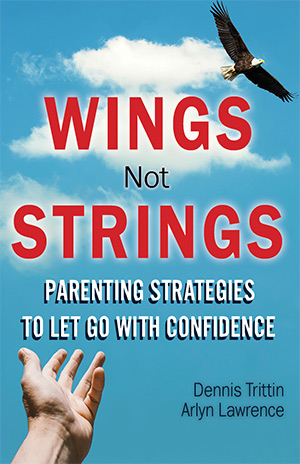Become a Masterful Communicator: Part Five
Conquering Communication Conflict
“In a conflict, being willing to change allows you to move from a point of view to a viewing point—a higher, more expansive place from which you can see both sides.”
~Thomas Crum
“Courage is what it takes to stand up and speak. Courage is also what it takes
to sit down and listen.”
~Winston Churchill
“Love is the only force capable of transforming an enemy into a friend.”
~Dr. Martin Luther King, Jr.
Question: What do Facebook “friends” in an election year have in common with parents telling their five-year old to eat her brussels sprouts? Answer: Conflict! We can all relate to this on some level, right? Whether it’s conflict with a boss, coworker, spouse, child, friend, parent, teacher, or even a next-door neighbor, the fact is conflict is a part of life! We aren’t going to always see eye-to-eye with everyone, and that’s okay. What matters is what we do (and how we react) when conflict arises. After all, great things can happen when we successfully work through it.
In this, our final segment of our five-part series on mastering communication, I’ll tackle some common sources of conflict and offer some preventive and management strategies for these and for general use. Note that I’ll be focusing on conflicts arising from communication, rather than other reasons.
Although certainly not a complete list, here are some common sources of communication conflict:
- Viewpoint disagreements.
- Dislike of decisions.
- Misunderstandings.
- Messenger “packaging.”
- Goal differences.
Viewpoint Disagreements
Have you ever noticed how every four years there is a spike in disagreements? Hmm. Wonder why! Aside from politics, however, people have different points of view on a host of topics and that is healthy and normal. Our backgrounds, experiences, training, and passions inevitably result in a variety of perspectives—diversity that spices up our lives. But sometimes it gets a little too spicey and morphs into genuine conflict. Within families. Among friends. In our workplaces and communities. It’s always been this way, but now it’s exacerbated by social media.
Is it possible to conquer our conflict? We believe it is. Here are our tips for managing these types of conflict, recognizing that some involve the message and others the messenger:
- Focus on a goal of mutual understanding through respectful sharing. Be open to other points of view. Listen actively and ask follow-up and clarification questions. Think “share with” versus “talk to.” Allow all voices to be heard. It’s amazing how differently we listen if our goal isn’t first and foremost to convince others we’re right and they’re wrong. Bullying and shaming others for a different opinion will never win a convert.
- Explore common ground. In some cases, our philosophical (or other) differences are so great that they are irreconcilable. However, in others, people may actually have common goals but differ on the methods to achieve them. By searching for common ground on goals, it takes the “sting” out of the discussion about methods.
- Differentiate fact from opinion. Often people share opinions but state them as fact. That doesn’t go over well. Encourage all sides to delineate the two. And remember, our opinions are often framed by the media we consume and that may result in significant bias. Be sure your sources are diverse and reliable.
- Clarify and confirm. Often, miscommunication occurs because of misunderstandings. When there are viewpoint disagreements, it pays to periodically confirm what we are hearing from the other party, especially if their nonverbal cues indicate concern or confusion.
- Respectfully agree to disagree. Our differences may still exist after a quality conversation/communication. That’s perfectly okay—there’s nothing wrong with having different points of view. Conclude by sharing your appreciation for their input and perspective and strive to keep the communication channels open.
Dislike of Decisions
Similar to the preceding scenario, conflict can occur when someone in a subordinate position (child, direct report) does not like, or is disappointed with, a decision made from a “superior.” Common examples are the teen who loses privileges after violating a curfew or an employee who was bypassed for a promotion in favor of someone else. The wise decision-maker will understand that the other party is disappointed, upset, or resentful and communicate with empathy and lots of listening. It is critical that the disappointed party feel heard (if they so choose) and be treated with dignity and respect.
For the person in the subordinate (disappointed) position, the key is showing respect for the “superior’s” decision-making authority, seeking helpful feedback, and making the best out of the situation—hopefully seeing it as a growth and learning opportunity if appropriate.
Misunderstandings
Who hasn’t experienced conflict stemming from a misunderstanding? Despite our efforts, sometimes our communications are misinterpreted, while other times, we misunderstand others. Either way, they make for difficult conversations and, at times, regret. No matter how many times we proofread a letter, email, or text, we can miss the mark because we cannot always correctly perceive how our audience is interpreting our message.
Here are some helpful tips when dealing with misunderstandings:
- Give the other party the benefit of the doubt as you would want to receive from them. Often when we misunderstand someone, we make assumptions, or worse yet, assign bad intent. That’s not only unfair to the other party, but it also brings a destructive attitude into a supposedly rectifying conversation. These communications rarely go well, and inevitably end up with feelings of regret and shame. We all make mistakes, but that doesn’t mean we were trying to! You know what they say about assuming!
- Be extra certain the timing is right. If either you, or the other party, is upset, be sure it’s the right time for follow-up communication. This is especially important if there is a risk of either party assigning bad intent. In order for the communication to be constructive, all parties need to enter with cool heads and healthy state of mind. (Note parents!)
- Be quick to apologize. Whether you or the other party were the one misunderstood, don’t hesitate to apologize for lack of clarity or a mistaken interpretation. That quickly takes the sting out of the situation. It also shows a willingness to move on.
Messenger “Packaging”
Sometimes our communication conflict arises from how the message was packaged. Was it appropriate to write that communication versus share it orally? Was the tone of voice constructive and respectful? Was the body language positive and supportive of two-way conversation? Did the sender adequately understand and show respect to the audience? Was the timing of the communication appropriate?
In most cases, when the messenger doesn’t come across well (as distinct from the message itself), it’s the result of a negative answer to one of the above questions. Thus, especially on important or sensitive communications, it’s important to get them right ahead of time. This will help to avoid those regrettable corrections. If it slips through the cracks, an apology and promise to do better next time are the order of the day.
Goal Differences
Occasionally there is conflict when the parties want something different from the conversation or communication. This irritating offense is common on social media. How many times do we see great information sharing punctuated by an obnoxious comment that attempts to “sell” the audience on their point of view. I don’t know anyone who likes being sold to when they were simply attempting to have a normal conversation.
In these circumstances, it’s advisable to ignore the remark or to arrange a conversation where the goals are mutually agreed from the outset. When parties want something different from a conversation, it’s rarely constructive.
Other General Tips
While the above apply to specific situations, here are some other conflict prevention/management strategies to keep in mind:
- Respect all parties’ right to be heard. That includes you, too! Whether it’s peer pressure, a challenge to your rights, personal safety, or position, it’s important to stand up for yourself. Sometimes, we allow others to intimidate or dominate us out of fear or insecurity. Also, certain personality types (especially the “S’s” in the DISC model) are so focused on “keeping the peace” that they risk being taken advantage of, especially by people with dominant personalities.
- Set appropriate boundaries. If there is disrespect, irrational behavior, or irreconcilable goals for the communication, it’s best to postpone it to a better, more constructive, time when our attitudes are right.
- If you’re upset, pause for ten seconds before responding. It’s amazing what ten little seconds can do! If need be, pause the conversation for a cooling off period. Keep your tone respectful and calm (admittedly not always easy!).
- Focus more on the difference than the person. More progress will be made this way.
- The more sensitive the topic, the more it needs to be handled in person. Simply put, there’s too much at stake relying on written communication when there is conflict.
- Stay constructive and humble at all times.
- Don’t stuff your concerns, communicate them. Although we may not like conflict, it’s important to maintain your self-respect by sharing your thoughts/feelings. And who knows, the other person might be unaware of your concerns.
- Remember, judgmental rants will never win a debate. Nor will bullying behavior.
- Avoid toxic people. This is especially true of social media. Disengage.
- Choose reconciliation over grudges wherever possible. When we harbor grudges and refuse to forgive, it can be like an all-consuming cancer. Strive for reconciliation whenever possible and don’t hesitate to seek support. Holding a grudge and/or refusing to ever speak to someone again will not make you feel better—it will feel like a burden that just won’t go away.
We hope you enjoyed this series on communication and that there were some nuggets you, your family and friends, and the children you guide can put to great use.
Here’s to successful relationships and communication to you and yours.
Tagged as: communication, series, life skills, conflict, managing conflict, conflict resolution, what I wish I knew at 18



















